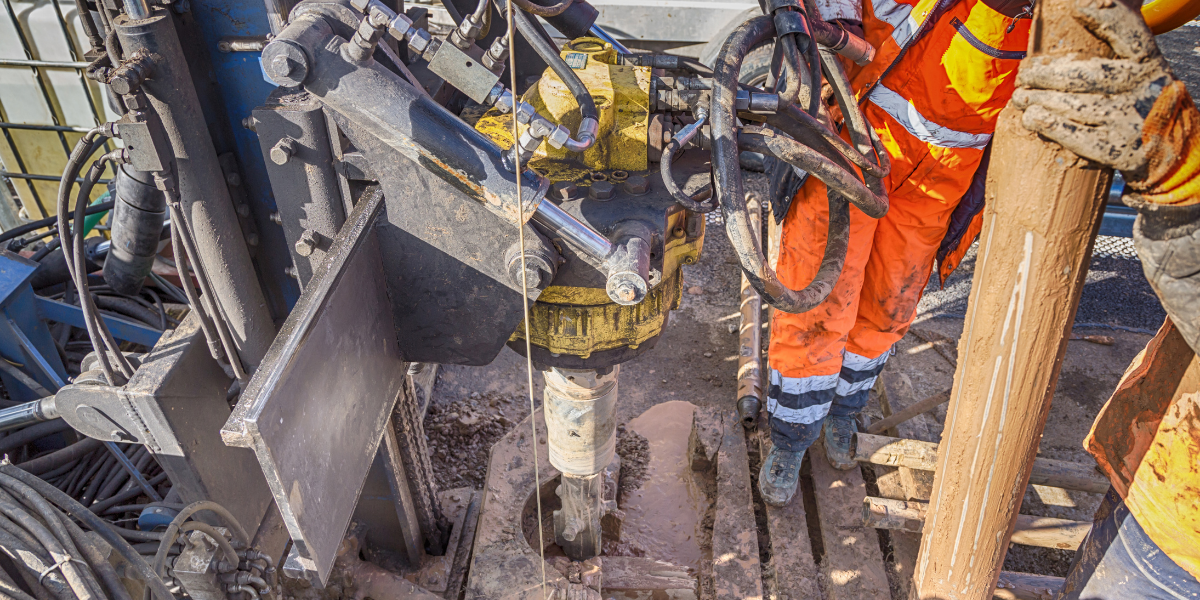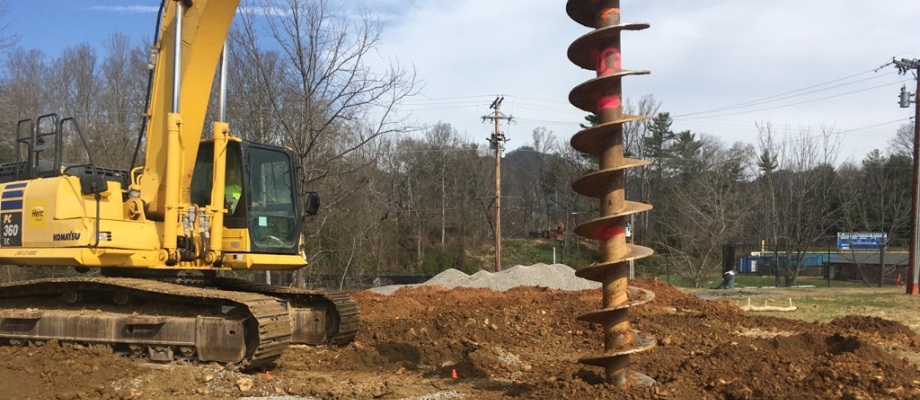How Geo Tech Engineering Sustains Large-Scale Construction Projects
How Geo Tech Engineering Sustains Large-Scale Construction Projects
Blog Article
Recognizing the Comprehensive Role of Geotechnical Designers in Ground Examination and Dirt Analysis for Building And Construction Projects
Geotechnical engineers are important to the success of building and construction projects, providing essential insights via detailed ground examinations and dirt evaluation. Their proficiency in examining soil actions and using innovative screening strategies informs important decisions that copyright architectural honesty and safety and security.
Role of Geotechnical Engineers
The critical duty of geotechnical engineers in construction projects can not be overstated, as they supply necessary understandings into soil actions and website problems. These professionals are entrusted with assessing the suitability of the ground for different sorts of frameworks, making sure safety and security and stability throughout the construction procedure. Their know-how encompasses a large range of activities, consisting of website characterization, dirt sampling, and research laboratory testing, which are important for determining the physical and mechanical residential or commercial properties of the dirt.
Geotechnical engineers use their searchings for to create foundational styles that fit load-bearing needs and reduce threats associated with soil slope, settlement, and liquefaction stability. They play a critical function in recognizing prospective dangers, such as groundwater variations and contamination, which can substantially affect job feasibility. Additionally, they work together with designers, civil designers, and specialists to guarantee that geotechnical factors to consider are incorporated into the overall design and building stages.
Ground Investigation Methods
Ground examination methods create the foundation of geotechnical engineering, allowing engineers to acquire a detailed understanding of subsurface conditions. These methods are essential for analyzing dirt residential properties, establishing groundwater degrees, and determining potential geological hazards.
Typical techniques consist of borehole drilling, which allows for the extraction of soil examples at numerous depths, supplying important data for analysis. Furthermore, in situ screening methods, such as Basic Penetration Examinations (SPT) and Cone Penetration Examinations (CPT), are used to evaluate soil stamina and density straight in the ground.
Geophysical methods additionally play a significant duty in ground investigations. Techniques such as seismic surveys and electrical resistivity tomography aid examine subsurface attributes without comprehensive excavation. geo tech engineering. These non-invasive methods are especially valuable in sensitive or big areas where disturbance must be reduced
Additionally, exploratory trenches can be excavated to aesthetically examine dirt layers and recognize any anomalies. Each of these methods contributes one-of-a-kind insights, permitting geotechnical designers to establish exact site assessments and inform design choices. In summary, a combination of these ground investigation strategies is crucial for effective construction jobs, making certain security and architectural honesty.
Soil Analysis Techniques
Dirt evaluation approaches are critical for recognizing the physical and chemical residential properties of dirt, which straight influence the style and construction of foundations and various other structures. Numerous techniques are employed to analyze soil qualities, making certain that geotechnical designers get accurate information for informed decision-making.
One frequently utilized method is grain dimension analysis, which figures out the circulation of bit dimensions within a dirt sample. This is crucial for categorizing dirt kinds and anticipating their actions under lots. One more necessary strategy is Atterberg restrictions screening, which assesses the plasticity and dampness content of fine-grained dirts, providing understandings into their engineering homes.

Area examinations, such as Typical Infiltration Tests (SPT) and Cone Infiltration Examinations (CPT), deal useful in-situ information regarding dirt strength and stratification. Jointly, these soil analysis techniques form the structure of geotechnical investigation, allowing designers to create risk-free and efficient structures customized to the particular conditions of the website.
Threat Mitigation Methods
Implementing efficient threat mitigation approaches is important for geotechnical engineers to resolve prospective challenges in building jobs. These strategies are essential in recognizing, assessing, and managing threats associated with dirt conditions, website stability, click now and groundwater fluctuations, which can adversely influence job end results.
One primary technique includes conducting comprehensive site investigations that make use of advanced geophysical techniques and extensive soil website link sampling. By getting exact data on subsurface problems, designers can make educated decisions on design and building and construction techniques. Additionally, employing predictive modeling tools permits the simulation of different scenarios, enabling designers to anticipate potential issues and execute preventive steps.
Furthermore, establishing clear interaction channels amongst task stakeholders cultivates a collective approach to run the risk of administration. Normal updates and assessments make certain that all parties recognize the advancing website problems and can adapt their strategies accordingly.

Influence On Construction Jobs
The performance of danger reduction strategies straight influences the general success of construction jobs. Geotechnical engineers play a critical duty in this domain, as their knowledge in ground investigation and dirt analysis educates vital choices throughout the construction process. By properly assessing dirt conditions and determining prospective dangers, these specialists allow project groups to design effective solutions that lower dangers connected with ground instability, water infiltration, and other geotechnical difficulties.
The impact of thorough geotechnical evaluation appears in different aspects of building and construction projects, including price monitoring, project timelines, and structural integrity. Early identification of problems allows for timely treatments, minimizing expensive hold-ups and budget overruns. Moreover, a comprehensive understanding of site problems boosts the layout and engineering procedure, guaranteeing that frameworks are constructed to endure ecological stress and potential natural calamities.
Ultimately, the payments of geotechnical designers are integral to the effective execution of Discover More Here building projects. Their work not only cultivates security and conformity with policies however also improves the long-term sustainability of structures, ensuring that they perform effectively throughout their desired life expectancy. The collaboration between other stakeholders and geotechnical teams is essential for attaining ideal results in construction undertakings.
Verdict
To conclude, geotechnical engineers perform an essential function in construction projects with thorough ground investigations and dirt analyses. Their knowledge in analyzing soil habits, using various examination strategies, and carrying out risk mitigation methods substantially adds to the structural honesty and security of constructed atmospheres. By working together with multidisciplinary teams, these specialists boost task performance and guarantee compliance with safety and security standards, eventually leading to successful building and construction end results and minimized prospective hazards.
Geotechnical engineers are integral to the success of construction tasks, giving vital understandings through comprehensive ground investigations and soil evaluation.The pivotal duty of geotechnical designers in building and construction jobs can not be overstated, as they give vital understandings right into dirt behavior and website conditions. Their expertise incorporates a wide array of activities, including site characterization, soil tasting, and laboratory testing, which are essential for figuring out the mechanical and physical buildings of the dirt.
By precisely examining dirt problems and determining potential risks, these professionals make it possible for job teams to design reliable solutions that reduce threats connected with ground instability, water seepage, and other geotechnical challenges.
In conclusion, geotechnical engineers execute a vital function in construction jobs with extensive ground investigations and soil evaluations.
Report this page